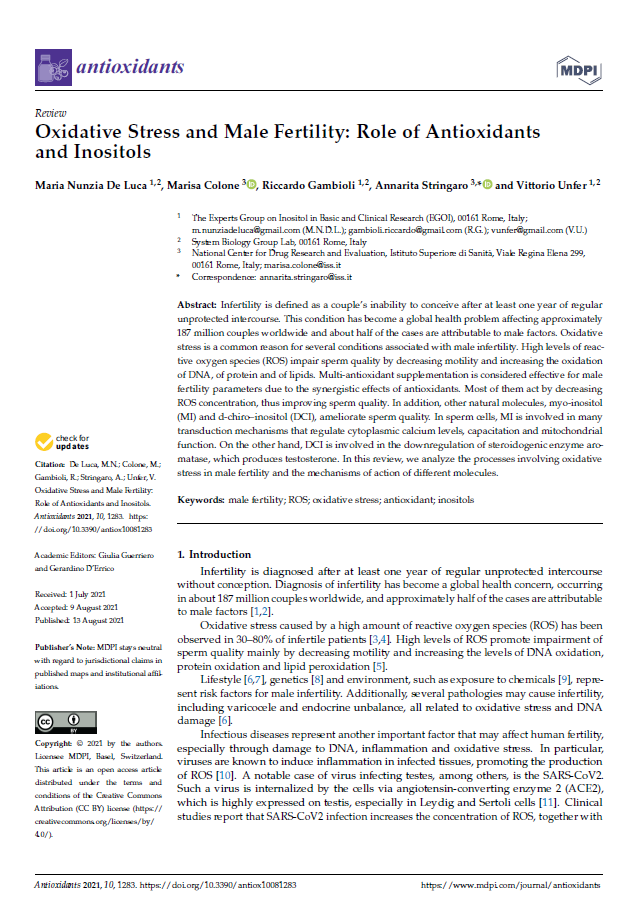Authors:
Maria Nunzia De Luca, Marisa Colone, Riccardo Gambioli, Annarita Stringaro and Vittorio Unfer
Infertility is defined as a couple’s inability to conceive after at least one year of regular unprotected intercourse. This condition has become a global health problem affecting approximately 187 million couples worldwide and about half of the cases are attributable to male factors. Oxidative stress is a common reason for several conditions associated with male infertility. High levels of reactive oxygen species (ROS) impair sperm quality by decreasing motility and increasing the oxidation of DNA, of protein and of lipids. Multi-antioxidant supplementation is considered effective for male fertility parameters due to the synergistic effects of antioxidants. Most of them act by decreasing ROS concentration, thus improving sperm quality. In addition, other natural molecules, myo-inositol (MI) and d-chiro–inositol (DCI), ameliorate sperm quality. In sperm cells, MI is involved in many transduction mechanisms that regulate cytoplasmic calcium levels, capacitation and mitochondrial function. On the other hand, DCI is involved in the downregulation of steroidogenic enzyme aromatase, which produces testosterone. In this review, we analyze the processes involving oxidative stress in male fertility and the mechanisms of action of different molecules

